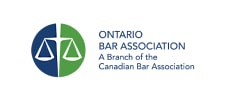6 Reasons Your Sponsorship Application Could Be Denied
After being granted permanent residency or citizenship in Canada, the next important step for many immigrants is to bring some of their eligible family members to live and work in Canada. Permanent residents of Canada can sponsor parents, grandparents, dependent children and a spouse and partner for permanent residence in Canada. The process can be tough and you need the help of an immigration lawyer Canada to avoid the common mistakes candidates make that contribute to their application being denied.
1. You do not meet minimum requirements to become a sponsor
Not every person who receives permanent residence or citizenship in Canada can sponsor a family member to Canada. There are certain minimum requirements you must fulfill to qualify as a sponsor. For instance, you should be an adult who is living or planning to live in Canada after the application is approved. There are also some minimum income level requirements that you must fulfill if you are sponsoring a dependent child, spouse/partner. You must also have no history of being involved in a criminal activity and you cannot qualify if you are receiving social assistance in Canada.
2. The sponsored person doesn’t qualify to apply for permanent residence
Likewise, the family member that you intend to sponsor to Canada should fulfill all the minimum requirements that are applicable to permanent residence applicants. For instance, you cannot sponsor a fiancé unless you prove that they meet the definition of a common law or conjugal partner. Anyone who is considered a security risk, has a criminal conviction or serious health problems may also not be eligible to be sponsored to Canada. This means that even if you qualify to sponsor a family member to Canada, the application will be denied if the person doesn’t meet the minimum requirements.
3. Sponsors living outside of Canada
As a sponsor, you need to show that you are residing in Canada in order for you to sponsor a family member successfully. In fact, if you haven’t obtained Canadian citizenship, you can only initiate the sponsorship process while in Canada. Initiating the sponsorship process while outside the country, if you are a permanent residence, could lead to the application being denied. Canadian citizens applying outside of Canada must prove that they intend to reside in Canada once their family member receives permanent residence.
4. Failing to declare all family members
When applying for permanent residence, applicants must declare all their family members whether or not they intend to sponsor them. If you do not declare the family member, he/she cannot qualify for permanent residence through sponsorship. In fact, such an omission could even impact on the sponsor’s permanent residency.
5. Misrepresentation
Many sponsorship applications are denied due to misrepresentation, whether accidental or deliberate. This occurs when the immigration officials find out that the information provided in your application is inaccurate. Sponsorship applications involve a lot of personal information. For instance, you may be required to explain the nature of your relationship, your financial status and conduct medical tests. This must be done if you want the application to be accepted.
6. Marriage of convenience
Spousal sponsorship that involve a foreign spouse/partner are usually thoroughly scrutinized to avoid cases of marriage fraud. The immigration officials will seek to uncover intimate details about your relationship in order to determine the true nature of the relationship.
To avoid all the issues mentioned above, get a representative in the form of an immigration lawyer Canada to help you review your options and provide guidance when sponsoring a loved one to live and work in Canada.
[xyz-ihs snippet=”spouseorpartnersponsorship”]



















